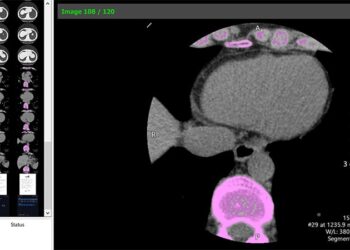TOPLINE:
An electronic health record (EHR)–based clinical decision support (CDS) system in emergency departments (EDs) increased adherence to geriatric prescribing recommendations for potentially inappropriate medications (PIMs).
METHODOLOGY:
- In this retrospective study, the researchers analyzed 6745 ED orders during 5814 patient encounters (median age, 72 years; approximately 70% White and 22.7% Black) and 1440 discharge prescriptions for PIMs in adults aged 65 years or older between August and December 2021.
- In October 2021, a geriatric CDS system was implemented into the EHR, which provided dosing recommendations and suggested alternative medications for 12 high-risk PIMs.
- The primary outcome was adherence to CDS recommendations. Secondary outcomes included the use of the CDS panel and adherence rates by medication type.
TAKEAWAY:
- Following the implementation of CDS, the proportion of targeted PIMs adherent to geriatric recommendations increased from 52% to 71% for ED orders and from 0.5% to 31.7% for discharge prescriptions.
- Utilization of the geriatric CDS order panel reached 62.1% for ED orders and 36.7% for discharge prescriptions.
- Among orders placed through the geriatric CDS panels, 90% of ED orders and 80.4% of discharge prescriptions adhered to geriatric CDS recommendations.
- Adherence to geriatric CDS improved for most ED orders, except for a few drugs such as diphenhydramine, indomethacin, oral and intravenous ketorolac, and oral lorazepam.
IN PRACTICE:
“Geriatric clinical decision support implemented in the ED for targeted potentially inappropriate medications significantly increased the proportion of ED orders and discharge prescriptions adherent to geriatric drug therapy recommendations,” the authors wrote. “As the volume of older patients in the ED increases, electronic health record–based clinical decision support can allow for care that is both better tailored and safer for this vulnerable population,” they added.
SOURCE:
The study was led by Gina A. Elder, PharmD, Cleveland Clinic, Cleveland. It was published online on May 13 in Academic Emergency Medicine.
LIMITATIONS:
Prescriber behavior changes and shared decision-making with patients could have influenced the findings. Data on important patient covariates such as ethnicity, preexisting dementia history, primary language, and rurality were not collected. Differences in patient volumes and site-level variations were not considered.
DISCLOSURES:
The authors did not report any funding information and reported no relevant conflicts of interest.
This article was created using several editorial tools, including AI, as part of the process. Human editors reviewed this content before publication.
Source link : https://www.medscape.com/viewarticle/geriatric-clinical-decision-support-tool-boosts-safe-2025a1000e67?src=rss
Author :
Publish date : 2025-05-29 12:36:00
Copyright for syndicated content belongs to the linked Source.














